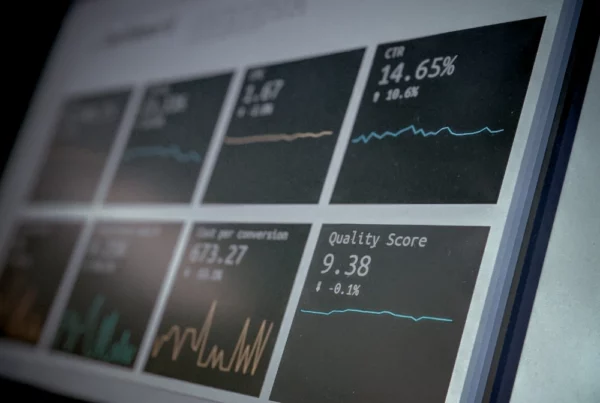In the 21st century we live in a world full of data. With digital transformation and the rise of new technologies, companies have untold amounts of data at their fingertips. However, this can be an advantage only if you know how to take advantage of it.
In the previous article we talked about the importance of understanding the value of data as a competitive advantage within an increasingly saturated market. Today, instead, we focus on a key tool to know how to use that data in a useful way and transform it into effective decisions. Do you know how to define what Competitive Intelligence is?
Competitive Intelligence: a lighthouse in a sea of data
Competitive intelligence is a discipline that allows transforming data into valuable and relevant information for making informed decisions. Therefore, we could say that it is like a lighthouse in the ocean of data, shedding light on trends, patterns and essential details that can be lost among so much information. Its role is crucial, as it provides a framework for identifying, collecting and analyzing relevant data that brings meaning to business decisions.
Not every business needs the same data. That is, each company has its unique set of data that is relevant and valuable to them. For example, while for a retailer it may be consumer behavior and buying trends that are important, for a manufacturer it might be fluctuations in raw material costs or changes in industry regulations. For a technology company, it might be emerging innovations and competitors’ movements. Whatever the industry, competitive intelligence helps to discern what data is relevant, how to collect it and how to analyze it effectively.
However, mere data collection is only part of the puzzle. The next crucial step is interpreting this data to gain insights that are actionable and relevant to your business. Do purchasing trends indicate a shift in consumer preferences? And do raw material costs signal the need to seek alternative suppliers or renegotiate current contracts? Do emerging innovations suggest the opportunity to explore new product lines or pose a threat to your market position? It is these questions, and many more, that competitive intelligence helps answer.
What to do once we have transformed raw data into valuable information?
Once the data has been collected and interpreted, it is important to disseminate the findings effectively within the organization. Executives and managers need this information in a timely manner to make strategic decisions. But competitive intelligence is not just limited to the top management of the company; it can also be valuable to other departments, such as Marketing, Sales, Product Development and Human Resources. Each of these departments can benefit from a clearer understanding of the competitive environment, enabling them to perform their roles more effectively, visualizing the big picture and making informed, strategic decisions. Ultimately, turning data into decisions is not an overnight task, but with the right approach and the right tools, it can be an incredibly rewarding and profitable process for any business.
Turning data into decisions
With the deep understanding provided by competitive intelligence, we come to the final stage: turning data into strategic decisions that will drive our business towards success, i.e., taking concrete actions based on the insights gained. These actions can cover various facets of the business, from the creation of new products or services, the identification and exploitation of emerging opportunities in the market, to the optimization of existing processes to increase efficiency.
Turning data into decisions involves a variety of possibilities, but they all share a common trait: they require deep integration of the data into the core of the company’s decision making. It is critical that the insights obtained are disseminated and applied at all levels of the organization. From the CEO to the sales manager, every member of the team must understand and appreciate the value of data-driven decisions, i.e., there must be a company culture in which data-driven decisions are valued and adopted as the norm. It involves instilling a spirit of curiosity, a desire to seek answers in data, and a willingness to question assumptions and traditional ways of thinking.
Companies that succeed in creating a culture of data-driven decisions enjoy a significant competitive advantage, are better equipped to predict and respond to market trends, make informed strategic decisions, and ultimately deliver superior value to their customers.
Ultimately, turning data into decisions ends up being an integral part of business strategy, as it provides valuable guidance in the complex and ever-changing world of business. At FJ Intelligence we offer Competitive Intelligence, Strategic Consulting and Digital Marketing solutions designed to help a business navigate this ocean of data and teach them how to transform it into effective and profitable decisions that make a competitive difference in the industry in which they operate.




